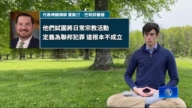【新唐人2011年3月17日讯】今年在中共的人大常委会立法规划中,《电信法》被改列为第二类立法专案,《电信法》仍出不了台。中共从1980年开始起草《电信法》草案,到今天已经31年了。是什么原因造成这个被认为迫在眉睫的立法案,几十年出台不了?请看以下报导。
中国拥有4亿2千万的网路用户,和1亿2千1百万左右的宽频用户,电话用户数更高达11亿3千5百万户,居世界之冠。
而2000年实施的《电信条例》,在内容的时效性及法律效力层级上,都已不能满足现阶段政府依法监管、企业依法经营、消费者依法维护自身权益的局面。因此,加快电信立法进程,备受民众关心。
《大纪元》新闻网站报导,湖南电信总经理廖仁斌表示,中国目前的电信市场竞争失衡现象加剧,电信市场竞争形势恶化,电信行业发展环境缺乏充分的法律保障。他还表示,由于用户信息涉及个人隐私,以及电信业者的商业秘密这部分没有明确的规定,使得电信业者无所适从,甚至与用户发生商业纠纷的尴尬局面。
时事评论员张建:“他这部法律如果说规定的像以往那些条例一样,都是严重的封堵网民、严重的封堵信息,那公布于社会去讨论的时候势必会引起网络亿万网友声讨,对他来说呢,会产生所谓的社会不稳定因素。如果通过立法的话,就使得中共在封锁网络信息方面,就被这个法律撤走。”
最近刚被派出所传唤的山东大学退休教授孙文广表示,他每天被中共派员电话骚扰上千次,被剥夺民众的通讯权。他认为,当局不敢让《电信法》立法通过,有两个原因。
孙文广:“现在我们在大陆,持不同政见的这些人士,电话经常受到窃听、受到骚扰,如果他增加制定一个法律的话,那么他就是违法的了﹔我们都知道,江泽民的儿子就是一个电信(公司)的老板,如果制定了电信法,他要垄断就很难了。所以我觉得这两方面——一个监控社会,一个垄断电信利益。”
由哈佛法学院、剑桥大学和多伦多大学共同组建的“开放网路促进会”(OpenNet Initiative),在2005年发表了一份研究报告指出,中共的网路过滤系统是全世界最发达的,不但范围广,手法更是细腻,整个制度包含多层次的法律限制和技术控制,牵扯到众多的国家机构,以及成千上万的政府职员和企业员工。
孙文广:“控制电信、操控电信,当然最终的目地是维护他一党专政,那么他就能够了解社会上一些波动啊!他们(民众)一些思想啊!控制以后,他就可以采取对策,从而维护他们一党专政的统治。”
《中国移动通信网》报导,目前大陆电信市场处在无法可依的混乱局面,如果《电信法》持续的难产下去,“势必影响接下来的电信新技术的普及,和整个社会的信息化能力的提升,电信业乱象丛生的局面也不会根本扭转。”而“电信业的快速发展有几个32年可等待!”
新唐人记者常春、李庭、黎安安综合报导。
31 Years Without Telecom Law
The Chinese government has been drafting
a telecommunications law since 1980.
Yet the law still cannot be promulgated.
What are the reasons for this?
China has 420 million internet users,
121 million broadband users,
and 1.135 billion telephone users,
the most in the world.
The 2000 Telecommunications Regulation,
has limited application on business operations
and consumer protection. The promulgation
of a telecommunications law has caught
the attention of the general public.
According to the Epoch Times, Liao Renbin,
the manager of Hunan Telecommunications,
said that there has been an increasing imbalance
of competition in China’s telecom market.
The telecom industry lacks legal protection.
Liao also said, there is no clear regulation on
user privacy and commercial secrets,
which has caused much disputes
between telecom firms and users.
Chinese dissident, Zhang Jian:
“If the new law is similar to previous regulations,
used to block netizens and information flow,
its release will receive much criticism from netizens.
Therefore, it will create social instability.
If the law is promulgated, the CCP’s blockade of
information will be restricted by this law.”
Chinese retired professor, Sun Wenguang,
said that he recieves daily over 1000
harassment calls from the CCP agents.
He thinks there are two reasons why the authorities
are afraid to promulgate the telecom law.
Sun: “Now in China, dissidents are constantly harassed
over the phone. If the law is passed, then what they do
is breaching the law. We know that
Jiang Zemin’s son runs a telecom company.
If the telecom law is passed, it will be harder for him
to monopolize the market.
So I think there are two reasons:
one is to monitor the society, and the other is
to monopolize the telecom industry.”
According to a 2005 report by OpenNet Initiative,
the CCP has the most advanced
Internet censorship system. It uses various levels
of legal and technical restrictions,
many state organizations,
and employs tens of thousands of government
and enterprise employees.
Sun: “The ultimate purpose of controlling telecom
industry is to protect its one-party rule.
So they are aware of people’s thoughts in society.
Then they can take corresponding actions
to protect their one-party rule.”
According to China Mobile network,
the current telecom market in China is chaotic.
If the telecom law fails again to be promulgated,
“it will affect the spread of new telecom technology
and the improvement of society’s information
capacity. The chaos in the telecom industry
will not change either.”
NTD reporters Chang Chun, Li Ting and Li Anan




























